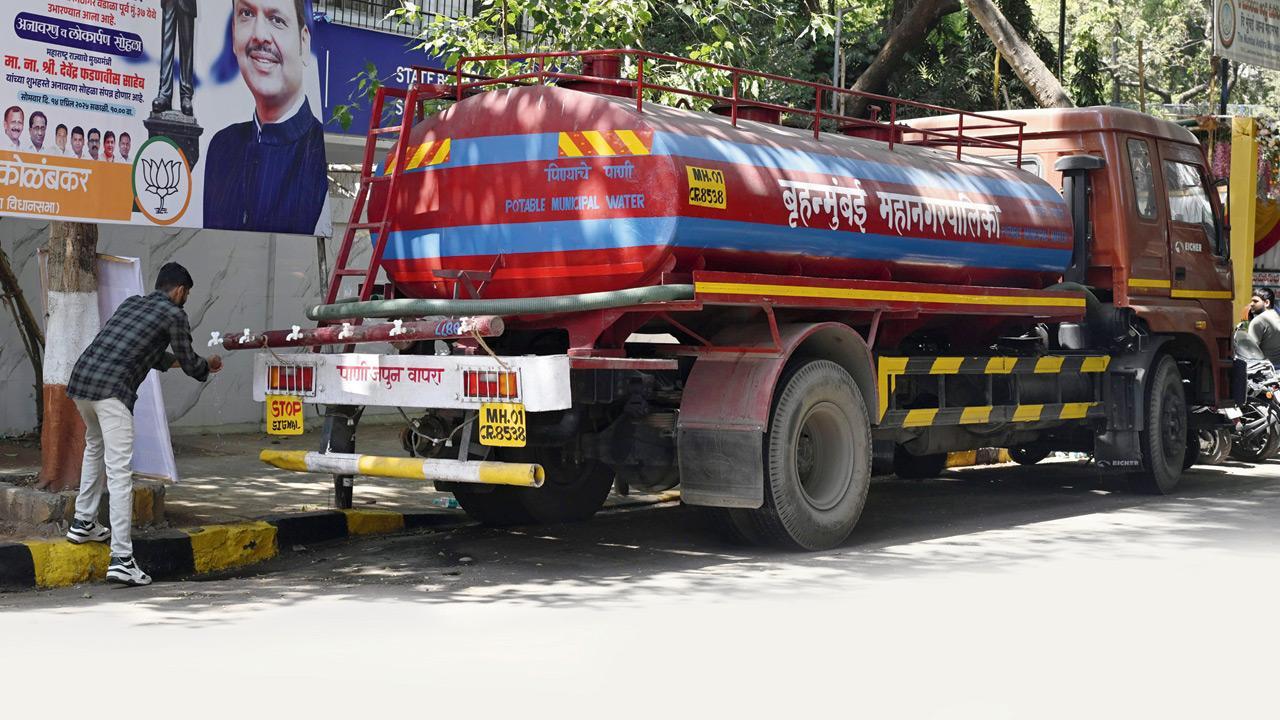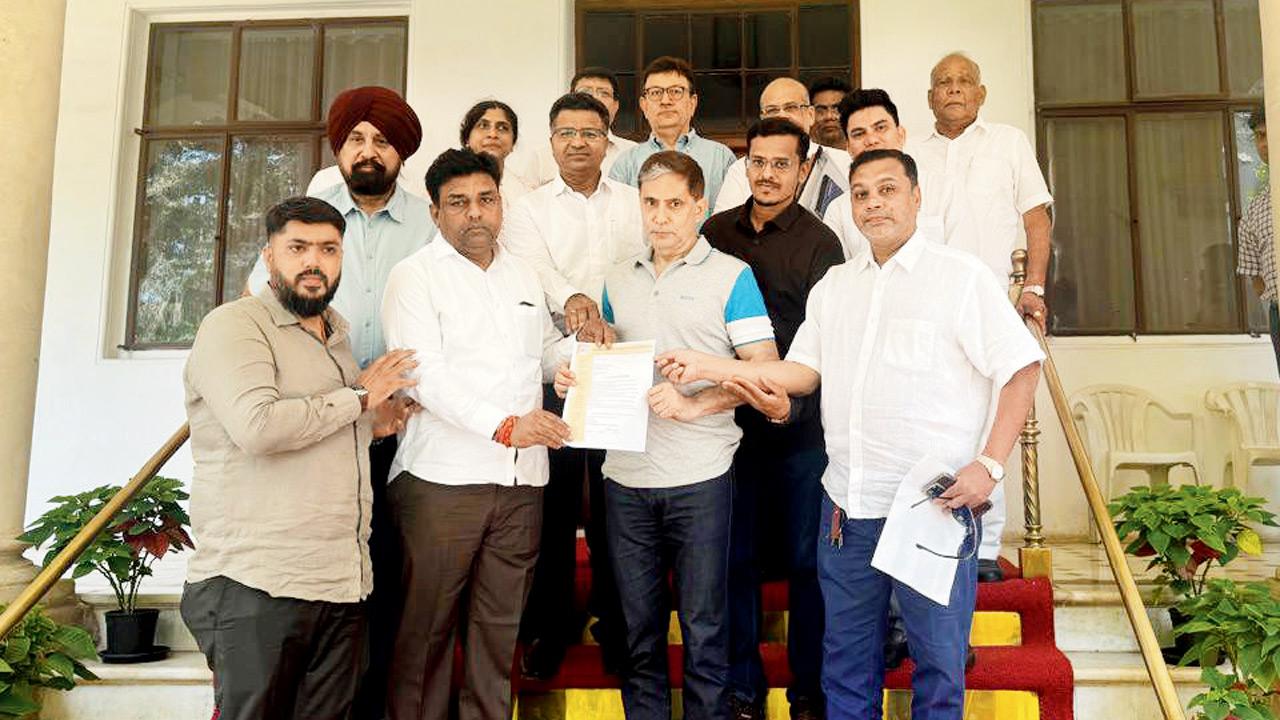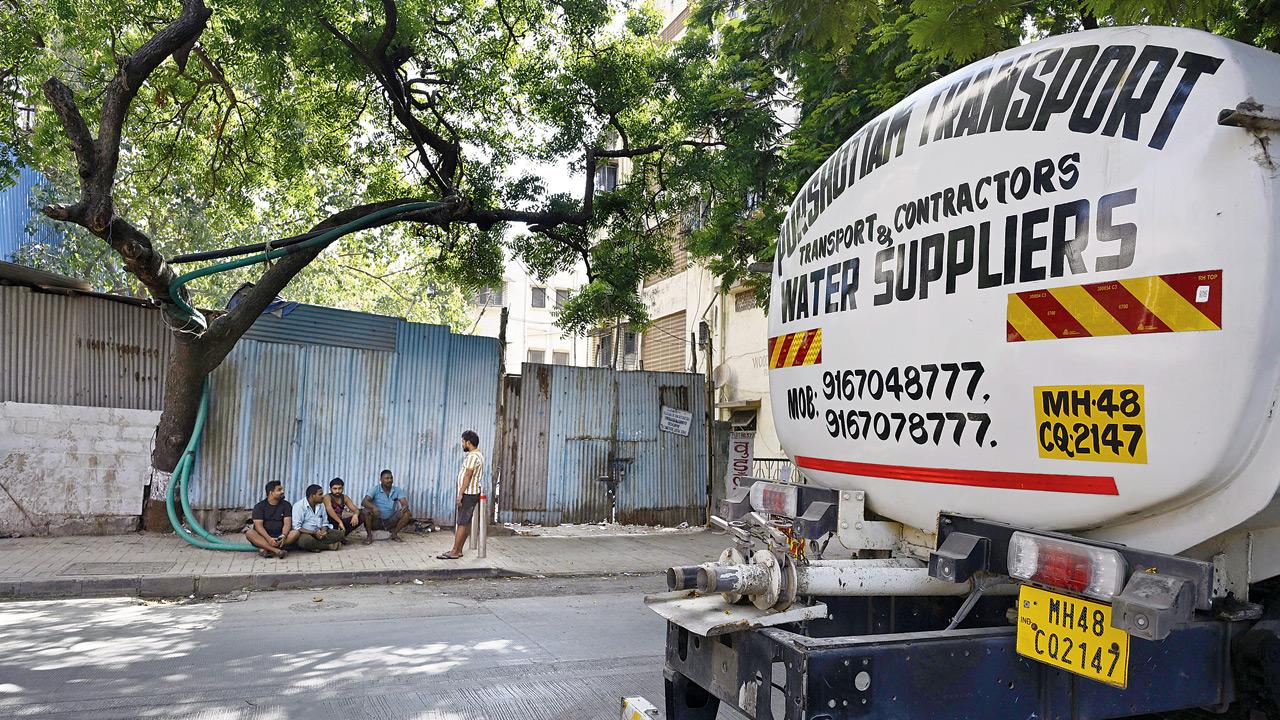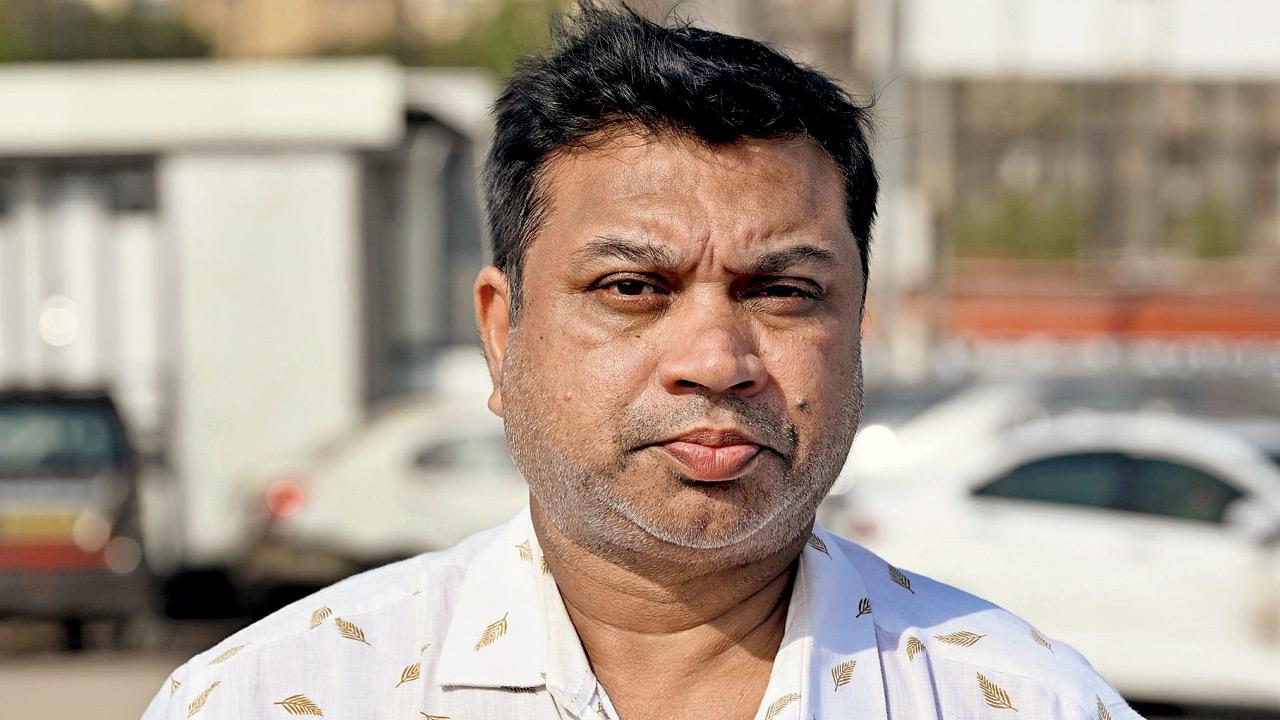Stir called off after BMC chief assures association of all help; tanker body may approach SC to modify guidelines; Monday’s meeting came a day after the civic body decided to take over water tanker operations and requisition groundwater sources by invoking the Disaster Management Act, 2005

A tanker outside Rajgruha, the former residence of Dr B R Ambedkar, for visitors coming to pay tribute on his 134th birth anniversary. Pics/Ashish Raje
Four days after ceasing operations over civic body notices to private borewell owners to stop providing water to tankers unless they obtain fresh licences from the Central Ground Water Authority (CGWA), the Mumbai Water Tanker Association (MWTA) resumed supplying water across the city on Monday evening after its representatives met civic chief Bhushan Gagrani. The association is now considering approaching the Supreme Court to get contentious CGWA guidelines modified.
 Mumbai Water Tanker Association members give a memorandum containing their demands to civic chief Bhushan Gagrani (with blue sleeves) at his Malabar Hill residence on Monday
Mumbai Water Tanker Association members give a memorandum containing their demands to civic chief Bhushan Gagrani (with blue sleeves) at his Malabar Hill residence on Monday
Rajesh Thakur, general secretary of the MWTA, told mid-day, “We meet civic chief Bhushan Gagrani on Monday. He assured us that the BMC [Brihanmumbai Municipal Corporation] would help us in our operations. The modification of CGWA guidelines was also discussed. We will appeal to the state government to raise our concerns with the Centre. We are also considering appealing to the Supreme Court as this policy was decided as per the court’s directions.”

A water tanker at a filling station near Soonawala Agiary in Mahim on Monday. Pic/Ashish Raje
Monday’s meeting came a day after the civic body decided to take over water tanker operations and requisition groundwater sources by invoking the Disaster Management Act, 2005. During the meeting, Gagrani appealed to the association to call off its strike, stating that the BMC had stayed the implementation of its notices to borewell owners over non-compliance with CGWA norms until June 15.
 Rajesh Thakur
Rajesh Thakur
He mentioned that some owners, however, needed to obtain permission from the BMC for digging wells. The municipal commissioner assured the MWTA members that the BMC would provide administrative assistance to help the association convey its demands to the authorities at the Centre. However, he also mentioned that technical matters lay within the jurisdiction of the central government and could not be interfered with by the BMC administration.
To dig for groundwater, one needs to take permission from the BMC’s health department. “There are around 300 groundwater sources which lack BMC permits,” an official said. MWTA Chairman Jasbeer Singh Beera said, “We have objections to a few CGWA guidelines, mainly the one mandating that a 200-square-metre area be maintained around every groundwater source, which is not practical in Mumbai.” About 1800 tankers supply 250 million to 300 million litres of non-potable water, mainly to commercial establishments and construction sites, and 50 million litres of potable water in the city.
 Subscribe today by clicking the link and stay updated with the latest news!" Click here!
Subscribe today by clicking the link and stay updated with the latest news!" Click here!








